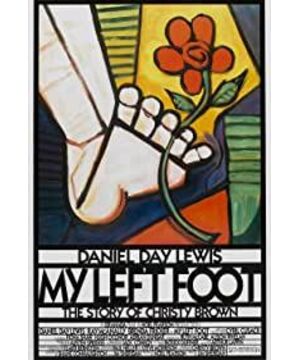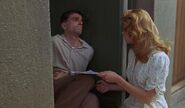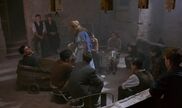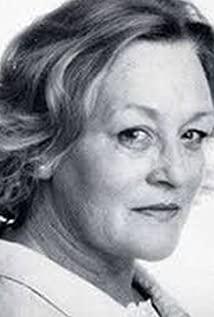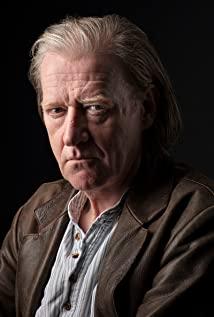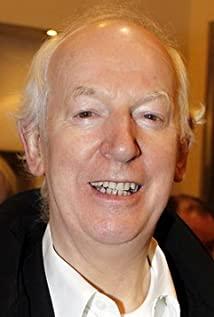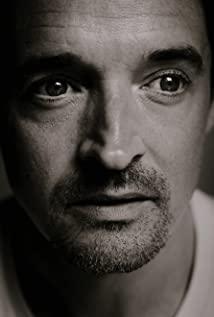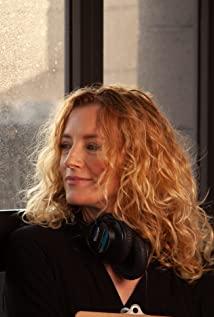Based on the autobiography of the same name by Irish writer and painter Christy Brown. Christy Brown was born in Dublin and is ninth out of 13 surviving siblings. He was found to have cerebral palsy after birth, which left him almost paralyzed in all four limbs. The doctor suggested sending him to a rehabilitation center to raise him, but his parents insisted on taking him at home. Christy became fascinated with literature and painting in his youth with the help of a social worker, and learned to create with his only movable left leg; later, during the treatment process, he met the doctor and writer Robert Collis, who helped Christy in his work. At the age of 22, he published his autobiography "My Left Foot" and became famous.
The film uses flashbacks: at the beginning, Christy's family dressed up to attend a charity party hosted by a lady, who was cared for by a nurse; the nurse flipped through Christy's autobiography and began to recall childhood memories in the order of writing. Later I found out that the lady is Christy's attending doctor and the person he once fell in love with (obviously the director changed the gender of Robert Collis's prototype here), and the nurse will become his future wife, so the main characters in the talk and laugh are actually already debut. The overall style of this film is simple but vivid, gentle but compact, touching but not sensational, inspirational but not preaching, showing Christy a real character like Christy who is physically disabled, talented, kind and simple, and stubborn and naughty at the same time. . Christy is unfortunate and lucky. His persistent caring since childhood inspired his mother who was afraid of him being hurt, his alcoholic and arrogant but also loving his father in his own way, his playing football, fighting, stealing coal, sleeping in a bed and eating a pot of porridge His brothers and sisters, his dream lover who helped him understand him, enlighten him and enlighten him but could not accept his love, are the blessings of his growth and success. I even think that if you insist on finding fault with this film, it is that Christy has not encountered enough setbacks (there are mainly 3 times in the film: at the beginning, she was dragged down by a misunderstanding, she was rejected by her first love in the middle, and she tried to commit suicide after learning about the doctor's marriage) , which makes the film's personal struggle and tempering insufficient (in the original book, it was written that he went to France to see other disabled people being inspired, but it was a pity that it was deleted). At the end of the film, he returned to the charity event, where he won the heart of nurse Mary through his persistence and roar. The screen played the subtitles of Christy and Mary getting married in 1972. This is actually avoiding the important points, because Christy's married life was not happy. It is said that Mary abused him and had an affair, which contributed to his death before the age of 50.
With a budget of only £600,000, the film won five nominations at the Oscars for Best Picture, Best Director, Best Actor, Best Supporting Actress, and Best Adapted Screenplay. In the end, Daniel Day-Lewis and Brenda Fricker, who played mother and son, won the actor award. In addition, the two were nominated for a Golden Globe, but lost to Tom and Julia Roberts, respectively. This film is Irish pride: the story of Christy Brown's unstoppable self-improvement spread, director Jim Sheridan made his directorial debut with a blockbuster, and up-and-coming Daniel Day-Lewis (whose father was Irish, he later became Irish and retained dual citizenship) has since Internationally renowned. Sheridan and Day-Lewis later collaborated on In the Name of the Father, which was also a huge success.
Daniel Day-Lewis has fully practiced his "immersion" style from the beginning of the film. He has visited the disabled center where Christy Brown has stayed many times, imitating their words and deeds, and practicing with his feet (but he can only use his right foot after all, so the final left foot effect is actually shot by the director in the mirror) . During the filming period, he insisted on sitting in a wheelchair, and even let people feed him. He was overwhelmed by his insistence to his agent that he was Christy Brown. The future winner of the hat-trick of the first Oscar winner, he is telling everyone with practical actions time and time again that you can't afford to be an actor with a method. . .
View more about My Left Foot reviews


